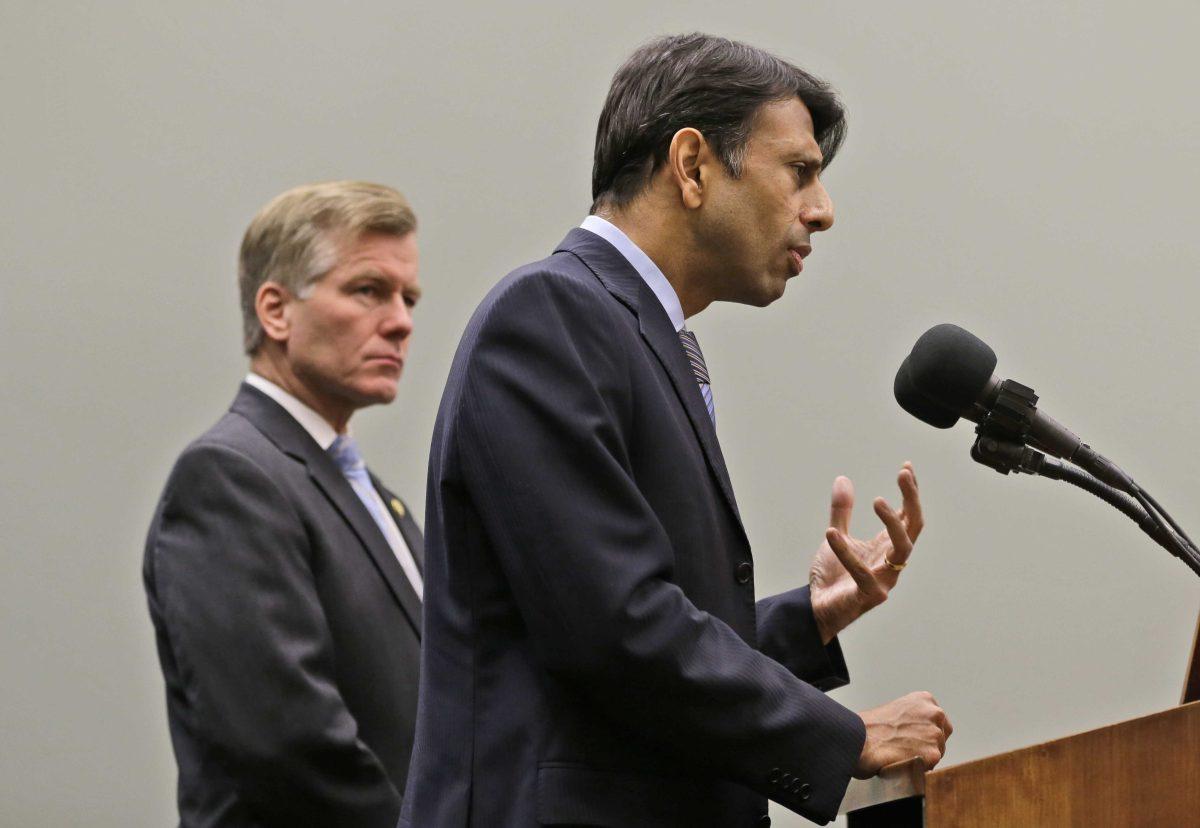More than $200 million was removed from the state’s higher education fund for the 2014 fiscal year in the $24.7 billion preliminary executive budget Gov. Bobby Jindal presented Friday.
The proposed total higher education budget is composed of different funds that experienced drastic changes this year – the higher education general fund underwent cuts of nearly $700 million, while the statutory dedications fund was increased about $600 million.
The increases and decreases in these funds, as well as others that contribute to the total higher education budget, resulted in a total budget of about $2.7 billion, which is $200 million less than the 2013 fiscal year.
The higher education budget, in total, funds many operations under the umbrella of higher education aside from the universities themselves, including public hospitals within the LSU System.
Lawmakers and University administrators said they are unsure about what those numbers mean, particularly the increase in the statutory dedication fund.
Sen. Dan Claitor said the $200 million higher education cut looks bad, but it’s actually even larger than it seems.
“We are uncertain about the switch from state general funds to statutory dedications,” said University Director of External Affairs Jason Droddy.
Jindal’s budget proposal assumes the privatization of two of the LSU System’s three hospitals, the Huey P. Long Medical Center and the E.A. Conway Medical Center, although the contracts for these changes have not been finalized.
Though the budget includes hospital funding for the time being, if the hospital transfer contracts are not signed at the expected time, the Jindal administration must either find money in the budget to continue funding the two hospitals or the hospitals will be closed.
Jindal said 7,000 LSU employees would be laid off if the hospitals are turned over to private management, but he expects most of them to be rehired.
“We have not yet had an opportunity to fully assess the potential impact of the proposed budget, but we look forward to working with the governor, legislators and other state leaders in finding solutions for funding higher education in Louisiana,” said Interim LSU System President and Chancellor William “Bill” Jenkins.
Director of Media Relations Ernie Ballard said Jenkins and other University administrators were still assessing the proposed budget and had no further comment about changes to the LSU hospitals.
Despite the uncertainty surrounding the proposed budget’s funds, more questions about how higher education will be affected remain.
LSU is one of many universities that receives state funding, and the amount each school receives has not yet been decided.
Discussions regarding appropriations to individual schools are expected to begin in March and should be finalized this summer, Droddy said.
Because these talks are just getting under way, it is unknown how Jindal’s proposed 2014 fiscal year budget will specifically affect University students.
Claitor said until the Jindal administration’s preliminary budget is approved, students and faculty can’t know with certainty about any changes in tuition or salaries. However, he said a $200 million decrease in the total higher education budget does not bode well.
These major budgetary changes signify a larger problem, Claitor said.
He said although higher education appropriations have decreased a total of about 9 percent over the course of Jindal’s administration, LSU has been hit harder than many of the other state universities that receive state funds.
“LSU under the Jindal administration has taken more than a 9-percent cut,” he said.
Claitor said students can see major changes at the University from last year to this year, and those changes can be attributed primarily to decreasing state appropriations that are affecting the quality of the LSU System.
“The University is losing prominent faculty and failing to attract others. Classrooms are crowded. Class offerings are less,” Claitor said. “From my point of view, LSU is on the cusp of losing its tier-one status [and] is not going in the right direction.”
Claitor said legislators need to realize these drastic appropriation changes to the LSU System are far-reaching and will hurt Louisiana as a whole.
“The flagship university belongs to the entire state, not just Baton Rouge,” Claitor said. “If you look around, wherever you come from, LSU has had an impact on the community. Legislators, wherever they’re from, need to recognize that and make it a priority.”
Claitor said state appropriations affect research abilities, which, in turn, affect the quality of faculty and general education that students can receive from the institution.
“Students should make it known that LSU’s tier-one status should be important to legislators,” Claitor said.
“The University is losing prominent faculty and failing to attract others. Classrooms are crowded. Class offerings are less. From my point of view, LSU is on the cusp of losing its tier-one status [and] is not going in the right direction.”





